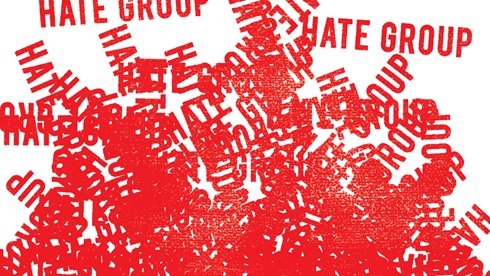Organization Trends
The Costs of Lost Credibility
 Image credit: Focus on the Family. goo.gl/FihzM5
Image credit: Focus on the Family. goo.gl/FihzM5

One of the widely remarked-upon dynamics of advocacy institutions in recent years is the subsuming of single-issue groups into their broader political coalitions. For watchdog groups, this can have real consequences that weakens their oversight of problematic figures in American government and public life. Put simply, how can groups like the Southern Poverty Law Center that characterize mainstream opposition to their politics as “hate” or groups like the Anti-Defamation League that use their civil rights reputations to push full-spectrum left-progressive policies reliably identify groups on the right that do truly go beyond the pale, and how can people who do not support the policy agendas of the SPLC and ADL trust those assessments?
The left-wing watchdogs have a propensity to “cry wolf” in imputing racialist motivations to immigration restrictionists; some would cynically suggest they do so to help their coalition partners’ electoral and policy prospects. But like the fable, that weakens their call to combat those figures who do, in fact, cross the lines.
All Together Now
This joining-up of formerly single-issue or issue-focused groups into ideological foot soldiers is broad and transcends the parties. It has occurred in labor unionism, with the process being given ideological dress in the concept of “social justice unionism” to justify Big Labor taking left-wing positions outside its traditional economic bailiwick on matters from gun control, to abortion, to racial ideology. On the right, some gun rights activists have criticized the National Rifle Association for being too close to a Republican establishment that has conceded to some gun control measures, leading to increased support for “no compromise” gun rights groups like the Gun Owners of America.
One of the single-focus groups that has taken the path of being subsumed into party-coalition block is the Anti-Defamation League. Formed in 1913 to combat anti-Semitism, the ADL had long favored abortion rights, liberal immigration policy, and strong civil rights protections, but in 2015 new leadership took it in the ideological direction of the controversial Southern Poverty Law Center. Under ex-Obama administration official Jonathan Greenblatt, the ADL has taken on fashionable liberal causes and faced extensive criticism for failing to timely address anti-Semitic comments from liberal politicians.
Making Persuasion Difficult
Here enters the American Immigration Control Foundation. With a name like that and a record of support for restricting immigration, it should not surprise readers that the SPLC has listed the group on its highly controversial and widely disputed “hate map,” since mainstream organizations that support restricting immigration like the Center for Immigration Studies are also listed. This overbroad classification, clearly intended to stifle debate on social policies not limited to immigration, is why Capital Research Center and other groups campaigned to convince the charity rating service Guidestar not to use SPLC’s ratings.
But here’s the (first) problem: American Immigration Control Foundation has associations that go well outside the mainstream and into morally dubious territory. It is alleged that John Vinson, the head of AICF, has been deeply involved in the “League of the South,” a neo-secessionist group with racist views, and helped devise a racial-segregationist nominally (and I would stress the “nominally”) Christian theo-political view known as “Kinism.”
The second problem? Those claims are made by the ADL and other liberal organizations with ideological axes to grind. There is no obvious reason to believe that those claims are false—Vinson is listed in the credits of the League of the South’s 2004 Grey Book: Blueprint for Southern Independence, likely indicative of close ties with the group—but some are not easily verified.
A Watchdog’s Purpose
And this presents a problem for someone who doesn’t share ADL or SPLC’s preferred policies but is concerned with keeping outright extremism out of public life. It also is a problem for one who may share Vinson’s desire for immigration limits but not his radical ideology, who should ensure the spokespeople for those views are not easily dismissed as kooks who tarnish what may otherwise be defensible political positions. That problem is providing clear and convincing evidence to a reasonable person that this time, ADL or SPLC is telling the truth.
If one takes a cynical view of ADL’s or SPLC’s intentions, that difficulty is a feature, not a bug. In this view, conflating a group with genuinely radical associations like AICF with a more mainstream group like CIS under the “hate” banner turns moderates off the views of the latter by associating them with the former. It may also make supporters of the latter’s immigration positions dismiss the charges against the former, even when well substantiated, leading them to turn off moderates.
But if these supposed watchdogs’ purpose is to isolate and identify real baleful influences on public life—true “hate groups,” not just “organizations advocating policies they don’t like”—the fact that it is difficult to package their findings in a persuasive manner for those who do not share their premises is a problem. One would think these issues would be important enough to lay cynical ideological advantage aside. Unfortunately, SPLC’s record and ADL’s recent record make it hard to give them the benefit of the doubt either.



